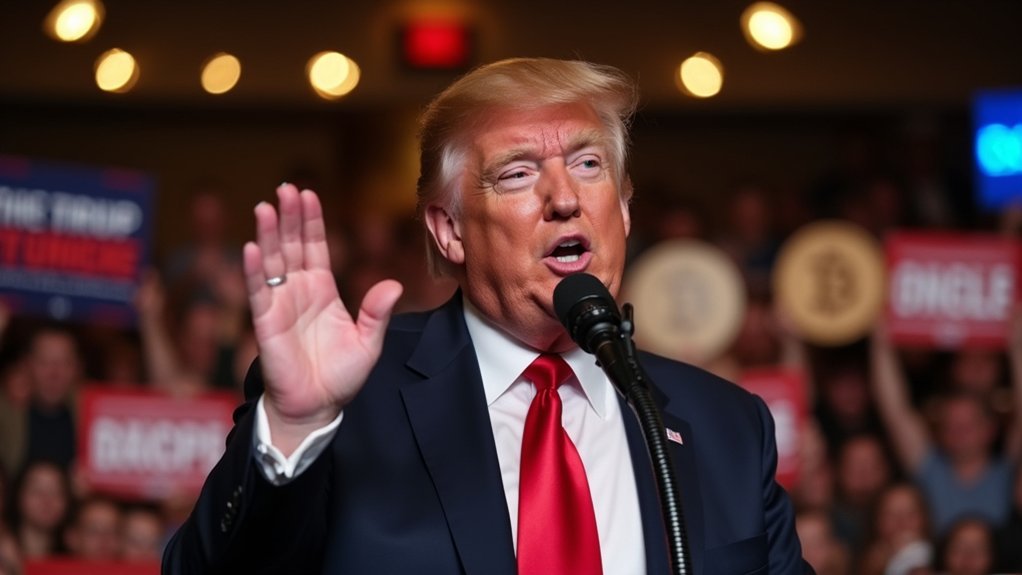The Financial Conduct Authority’s contemplation of lifting restrictions on retail access to crypto Exchange Traded Notes represents a fascinating pivot from its historically cautious stance—one might even call it grudging acceptance that perhaps consumers can be trusted to make their own spectacularly poor investment decisions.
Currently, crypto ETNs remain the exclusive playground of professional investors, a restriction that has effectively quarantined retail investors from what regulators consider dangerously volatile products.
The proposed regulatory framework would democratize access under stringent conditions: products must secure listings on recognized investment exchanges, comply with financial promotion rules, and provide risk disclosures that presumably scream “abandon hope, all ye who enter here” in appropriately regulatory language.
The regulatory red carpet comes with appropriately terrifying warning labels written in the finest bureaucratic prose.
This potential shift toward retail accessibility mirrors approaches adopted by other jurisdictions—countries that apparently possess greater faith in their citizens’ capacity for financial self-harm.
The FCA’s proposal acknowledges market realities while attempting to thread the needle between consumer protection and competitive positioning.
After all, why should UK investors be denied the privilege of losing money on crypto derivatives when their European counterparts enjoy such opportunities?
The regulatory safeguards reveal institutional ambivalence: allow access but wrap it in sufficient warnings and procedural barriers. Unlike crypto ETFs that enable access without managing private keys or digital wallets, ETNs present additional structural considerations for retail investors.
Risk disclosures would mirror those required for direct crypto asset sales, ensuring investors receive thorough education about potential catastrophic losses before proceeding with enthusiasm undimmed.
Market implications extend beyond mere product availability.
Enhanced competitiveness in the crypto sector represents part of the FCA’s broader efforts to support UK growth—a delicate balancing act between fostering innovation and preventing widespread financial carnage. The proposed changes align with consultations on stablecoins and cryptoasset custody published as part of the regulator’s comprehensive crypto roadmap.
The move signals regulatory evolution from outright prohibition toward managed exposure, acknowledging that determined investors will find alternative routes to crypto exposure regardless of official restrictions. This regulatory shift coincides with crypto ownership in the UK rising to 24% in 2025, demonstrating growing mainstream acceptance of digital assets.
Should the proposal advance, retail investors would gain diversified investment options while accepting full responsibility for outcomes.
The FCA’s continued monitoring approach suggests pragmatic recognition that regulatory frameworks must evolve alongside market developments, even when those developments involve products of questionable wisdom.
This represents regulatory maturation: accepting that market forces and investor demand sometimes overwhelm protective instincts, requiring adaptation rather than rigid resistance.









